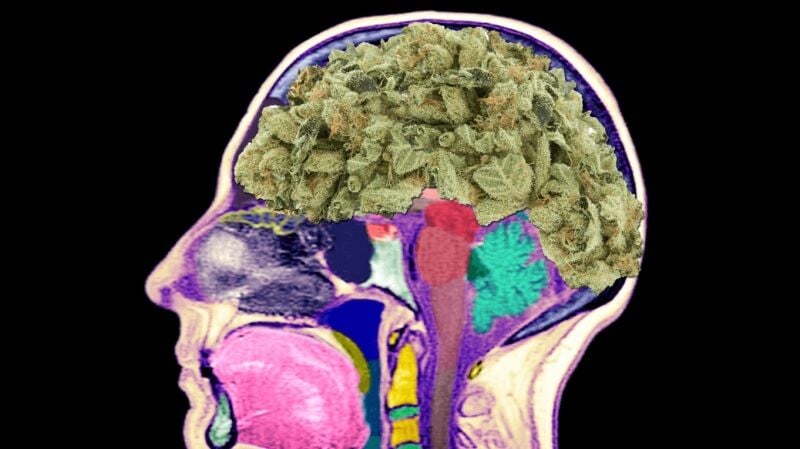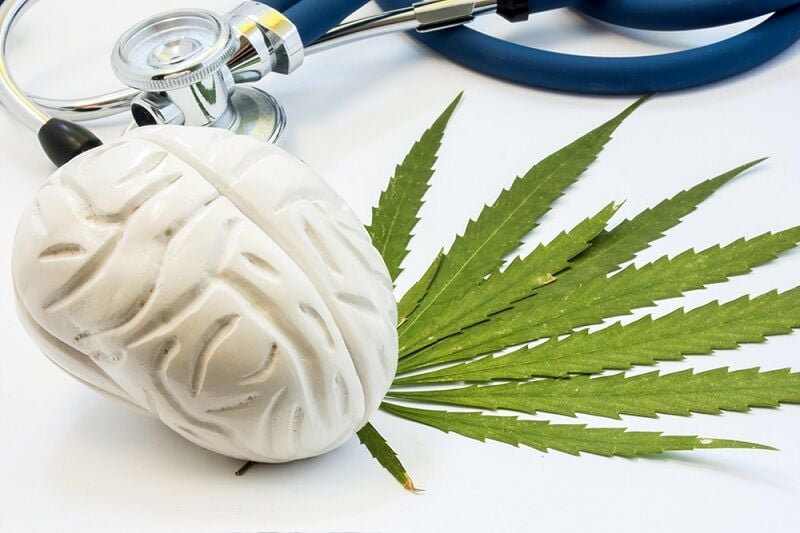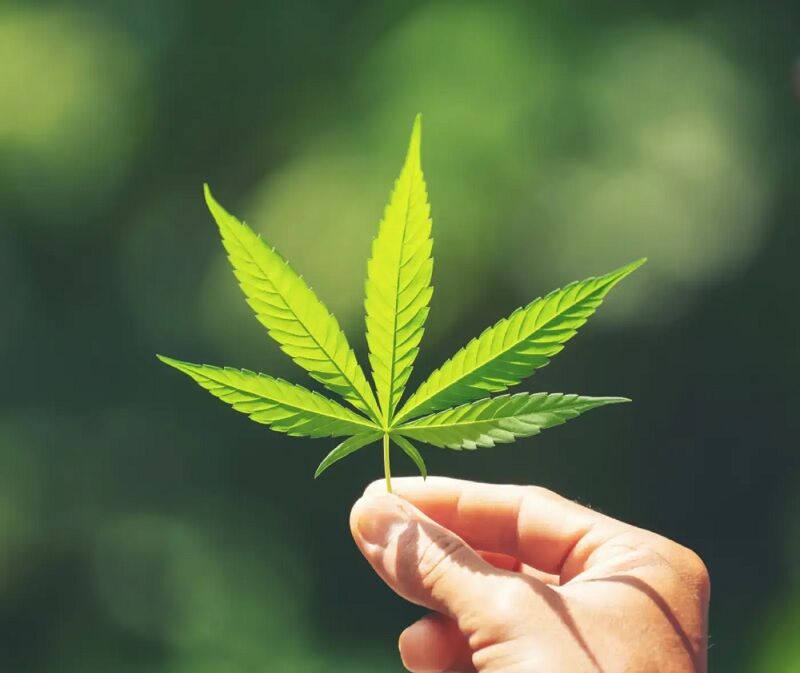Can marijuana cause brain damage?

So, with all this talk of legalizing weed for fun popping up across the United States, some folks are scratching their heads, wondering. Does smoking pot mess with your brain. It’s all tangled up with stuff like how much THC that’s the chemical in the pot that gets you high, how often you smoke, and your body’s unique makeup.
Like a lot of things we put into our bodies, weed has a complicated dance with our brains. Its top psychoactive compound, Tetrahydrocannabinol latches onto specific spots in the brain, messing with our memory, appetite, how we feel pain, and mood. But what happens when this dance with weed starts being an everyday thing.
Well, smoking weed all the time might end up causing some permanent brain damage, kind of like what happens with too much alcohol, meth, or heroin. And it’s not just about your brain – the changes can stretch to other parts of your body, causing a whole range of weird symptoms. Stick with me through this article, and you’ll get the scientific lowdown on all this, plus the potential risks of puffing on a joint.
When weed meets brain
Chatting about how weed and the brain get along is truly mind-blowing. It’s all about complex chemical changes happening in your brain traffic. Weed’s conversation starts with a straight hello to our endocannabinoid system, mainly the CB1 receptors. This chitter-chatter can tweak how we think, feel, and perceive things. Cool, right? Did you know that THC, the head honcho of mind-bending stuff in weed, acts like a stunt double for a neurotransmitter called anandamide. The ripples created by these cross-talks on brain function can be sorted into the right-now effects and then stick around for a while effects.
Short-term effects on brain function
Initially, marijuana affects your brain in a few distinct ways. Short-term effects include difficulty in judging distances and remembering details. You might also experience fatigue, confusion, paranoia, and anxiety. In rare instances, marijuana can even trigger psychotic episodes marked by hallucinations or delusions. However, these immediate effects typically fade after a few hours, once the influence of marijuana subsides.
Long-term brain impact
The long-term impact of marijuana on the brain, on the other hand, is still under scientific scrutiny though some clear patterns are emerging. Prolonged marijuana usage is tied to an increase in the risk of developing substance abuse disorders and dependence on marijuana. It can potentially affect memory, concentration, IQ, and other essential executive functions like problem-solving and decision-making. Studies suggest some individuals may experience cognitive impairment and memory loss as a result of chronic use. Even the brain’s optimal development might be hindered in heavy marijuana users, particularly those who start at a young age. So, answering the question can marijuana cause brain damage the response is it potentially can if misused over long periods.
Cognitive effects of marijuana use

Diving further into the topic, you’re about to delve into a thorough exploration of the cognitive effects stirred up by marijuana use. Delicate domains such as memory, learning, and even the development of adolescent brains are to be scrutinised.
Impact on memory and learning
One of the most common perceivable impacts of marijuana use relates to memory and learning. Engaging in cannabis consumption significantly alters normal brain functioning. The core part of your brain, the hippocampus, which acts as the memory centre, reportedly shrinks in size for chronic cannabis users.
Smoking marijuana doesn’t simply elevate the level of your bliss, but it often ushers in impairment of attention, learning, and memory, even if only for a few hours. This implies that whilst the temporary effects wear off, habitual use may lead to long-term cognitive shortcomings, notably, harm to the memory.
Effects on adolescent brain development
Switching gears, let’s discuss the vulnerable demographic of adolescents. Marijuana use during this phase of rapid brain development might trigger irreversible changes. A highly recognised study conducted in New Zealand, spanning a significant 38 years with over 1,000 participants, revealed a stark relation between prolonged marijuana use and cognitive decline.
Certain researchers support this note, pointing to significant loss of IQ points, ranging from six to eight, in those heavy marijuana users who initiated during adolescence and continued into adulthood. Interestingly, ceasing marijuana use as an adult did not restore these lost IQ points. This infers a daunting implication of potentially permanent intellectual damage owing to adolescent marijuana consumption.
Potential structural changes in the Brain

Brain volume and composition
Numerous research studies have highlighted that frequent marijuana use influences brain volume and composition. For example, a study by Block RI, et al. 2000 reported significant effects on brain tissue volume and composition following frequent marijuana use. In the study, alterations in brain composition were identified, signifying marijuana’s role in influencing cognitive functions.
Neural connectivity alterations
Heavy marijuana use also leads to significant changes in neural connectivity. For instance, a research study by Kanayama G., et al. 2004, emphasised the impairment of spatial working memory in heavy cannabis users, implying an alteration in neural functioning.
While these studies present somewhat conflicting reports, they provide a clear indication of marijuana’s potential to cause certain modifications in brain structure and function. As research continues to advance in this area, a clearer picture of marijuana’s long-term effects on the brain will likely emerge.
Research insights on marijuana and brain health

Recent studies on cognitive function
Exploring the recent studies, it’s clear that marijuana could influence cognitive functions negatively, particularly memory. The root of this impact lies in marijuana’s psychoactive compound, THC. Its significant effect on the hippocampus, a brain region critical for memory formation, triggers alterations that could lead to persistent impairments affecting both short-term and long-term recall.
Research from Renaissance Recovery supports this claim, delving into the long-term impacts of marijuana on the brain. It uncovers nuanced insights into cognitive functions and potential weed-related brain damage in several key areas.
Adolescents and long-term use outcomes
When it comes to adolescent use, marijuana might inflict irreversible cognitive decline. A study found that immature rats exposed to cannabinoids exhibited poorer performance on cognitive tasks, such as maze learning, compared to mature rats subjected to THC. These findings were echoed by Schneider and Koch, who reported alterations in pubertal rats treated with the receptor agonist WIN, showing variances in sensorimotor functioning, object recognition memory, and social behaviour.
They further found that chronic WIN-treated pubertal rats demonstrated object-social recognition deficits, suggesting impairments in short-term information processing. Moreover, self-reported alcohol withdrawal symptoms were found to predict poorer performance on learning and memory in non-marijuana-using teens with histories of episodic alcohol use.
Health risks and psychological effects
Diving deeper into the effects of marijuana, it’s essential to explore the latent risks associated with its usage. This understanding includes potential addiction pathways, the likelihood of dependency, and its association with severe mental health disorders.
Addiction and dependency risks
Though often viewed as a benign substance, marijuana hosts a potent psychoactive compound, Tetrahydrocannabinol, known to invoke addiction and dependency in users. Particularly, when consumed excessively or over extended periods, the euphoria associated with THC encourages repeated use, leading to a cycle of dependency. Research submits that approximately nine per cent of marijuana users become addicted, a figure which increases among those who start young and those who consume it daily by 25-50 per cent. Chronic consumers might experience withdrawal symptoms upon cessation, further evidence of the drug’s addictive potential.
Upon observation of the potential impacts of marijuana on cerebral functions, it is evident that sustained use can culminate in cognitive deficiencies. This manifests prominently in the form of memory deterioration and impeded brain maturation. Adolescents, notably, are susceptible to a heightened risk of enduring cognitive degeneration. Moreover, it is discernable that the utilization of marijuana can precipitate dependency, owing to the powerful psychoactive properties of THC that may spur addiction. The correlations between marijuana consumption and mental health disorders such as schizophrenia and depression are undeniable aspects that demand consideration. Despite our inability to explicitly affirm that marijuana induces these disorders directly, the associated risks are substantial enough to necessitate vigilant caution.
Want to no more, Ethical considerations in medical cannabis. Exploring the ethical landscape of medical cannabis requires a delicate balance between patient safety and scientific research. As you dive into the world of cannabis medicines, understanding the ethical guidelines is crucial. These not only streamline ethics applications but also ensure the safety and well-being of patients involved in clinical trials.
Latest Thailand News
Follow The Thaiger on Google News:


























